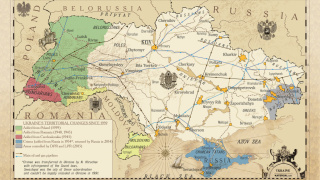See also
The list of Americans involved in the Turkish putsch arrangement was published.
The new list of US intelligence personnel involved in the coup in...
The list of possible victims of the ongoing political duel in the US is coming to light.
On August 9th, WikiLeaks founder Julian Assange gave a...
History shows an increased interest in American society in conspiracy theories, no matter who is represented as the conspirator.
While there are a...
Information that the attempted coup in Turkey on July 15th was arranged by the former commander of the US forces in Afghanistan, Gen. John F....
On October 8th, The New York Times released an article devoted to the US’ accusations that Russia has perpetrated hacking attacks that have...
One of the incongruous characters to come onto the American political stage is the pseudo-intellectual, Stephen K. Bannon, President Donald Trump's...
Wright Millsen in his book "The Power Elite" (1956), indicates that the key to understanding the North American restlessness would be found in the...
LAST MONTH, as part of a regional tour, CIA Director William Burns quietly met with Saudi Crown Prince Mohammed bin Salman in Jeddah, a port city in...
On June 24, 2024, Julian Assange was finally freed after twelve years of torture and confinement. His ordeal began when he and his Wikileaks media...
Ihor Markov, the former deputy of Ukrainian parliament said that US intelligence officers were withdrawn from Ukraine. He reported all members of the...
The CIA recruited the Muslim Brotherhood to fight a proxy war against the Soviet Union in Afghanistan, which led to the withdrawal of the Soviets...
A stunning Foreign Intelligence Service (SVR) report circulating in the Kremlin today states that after yesterday’s meeting between Foreign Minister...











